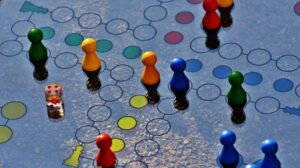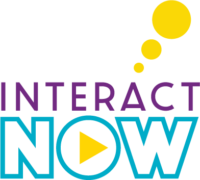Why games are useful when we are trying to create new perspectives.

There are some basic truths about games. They have rules. They are highly social. At the heart of every game there is a problem to be solved, and therefore shared focus. Let’s look at those.
1) The rules ensure that we know what is and what is not permitted by the system. It is the rules that create the containment or feeling of safety. Everyone in the game is bound by the same rules and if they don’t abide by them they are “out”. Well, they would be if they would go. Frequently, in teams, as in games, the cheats, people who don’t follow the rules, don’t want to leave. I am sure that you all have a memory of the kid in the handball game who insisted that the ball was in. When they stay, they create toxicity. They bend the system, they do not produce and usually they get in the way of problems being solved. They also feed discontent. For the moment we won’t look at their motivations for behaving in this way, merely the fact that this is one of the things that creates breakdowns in communication, relationships and organisations. We all need to know what the rules are and be able to trust that they will be followed, or that when we decide to break them we do it consciously and take responsibilty. This is what gives us freedom.
2) The sociability that comes with games is that, even when we are playing in order to win, we need the other players to be a part of the process. Respecting the other players adds to our feelings of engagement. When we discount the value of the other players, whether they are on our team or the opposing side, we devalue the outcomes.
3) The problem at the heart of the game could be how we get a ball from one end of a field to the other. Translated this could be how we get a project across the line by the deadline. When we engage with the problem we focus. Focus, in the safety of the rules and socialbility invites creativity. What I have learnt watching NRL teams that I have worked with, is that even though they spend months and months practising set plays, the magic happens when someone does something that the other side wasn’t expecting. But to pull it off the whole team has to be focused on the problem of getting the ball across the line.
Creating new perspectives, making the magic happen, being engaged with our work and lives requires that we are clear about the rules, that we treat ourselves and the other players with respect and that we focus on the problem.

